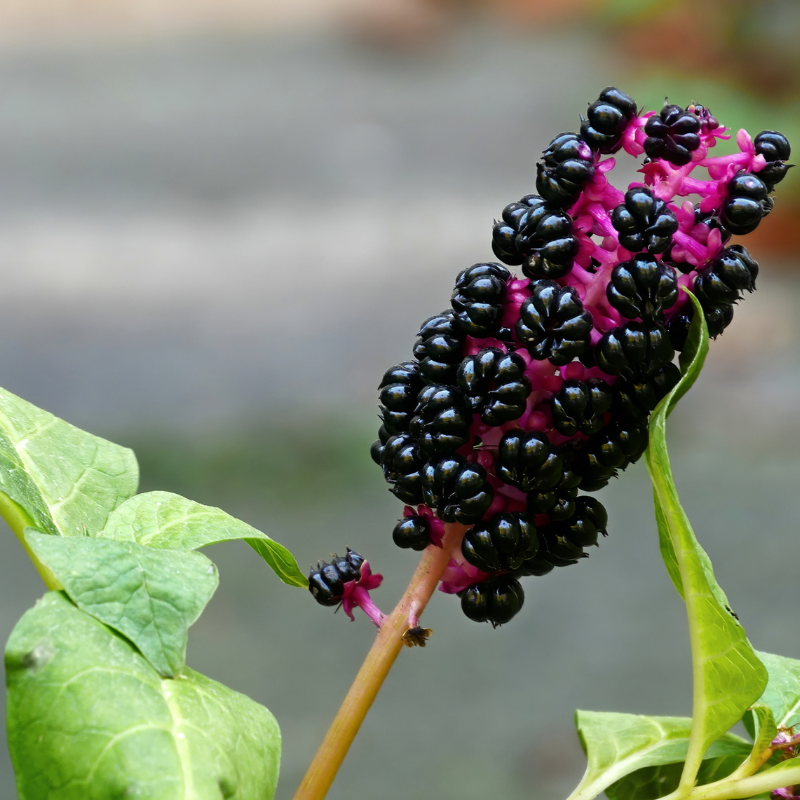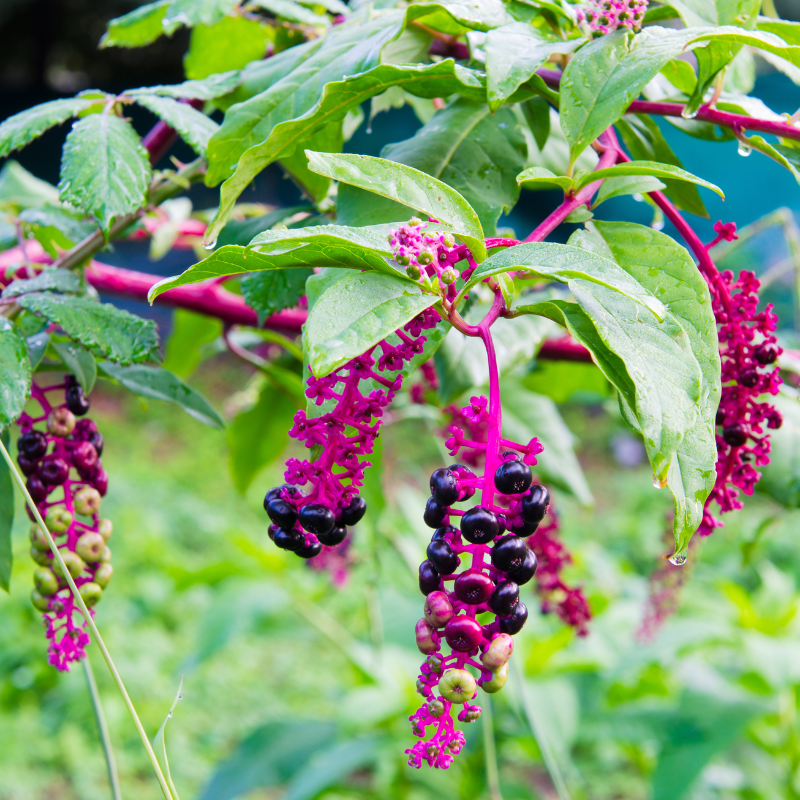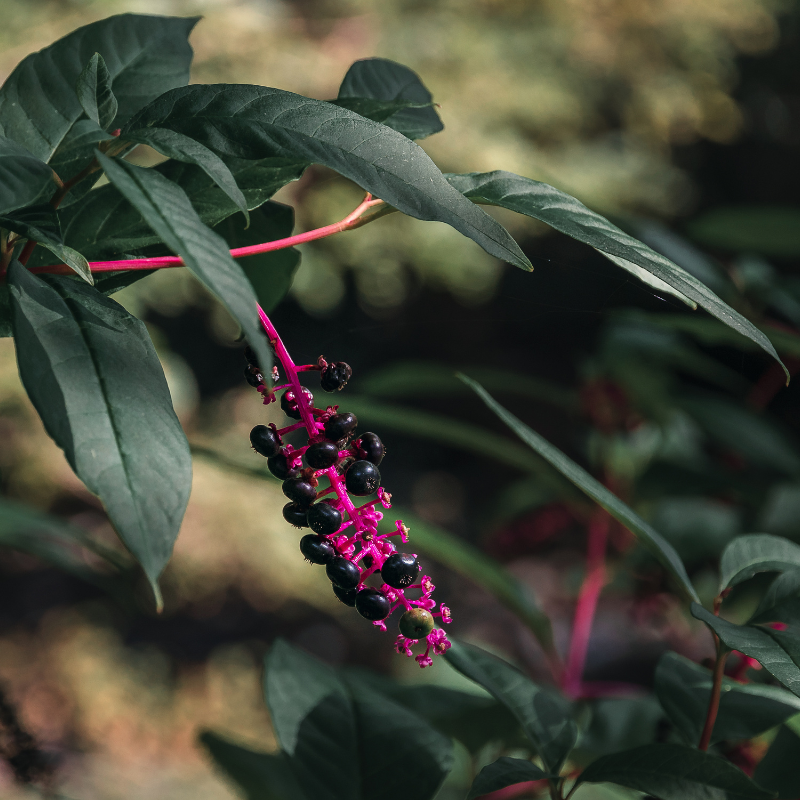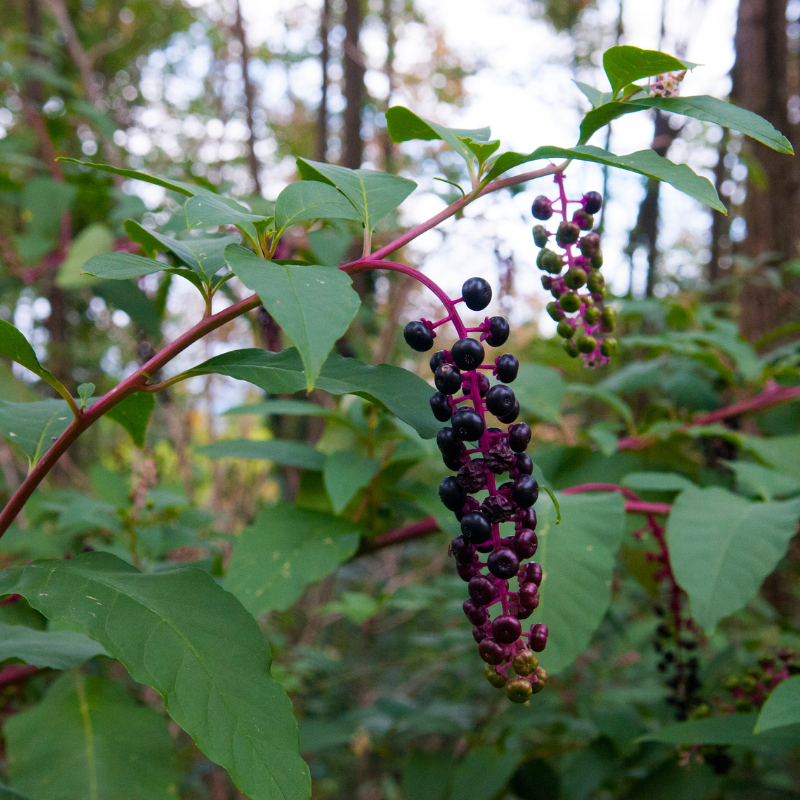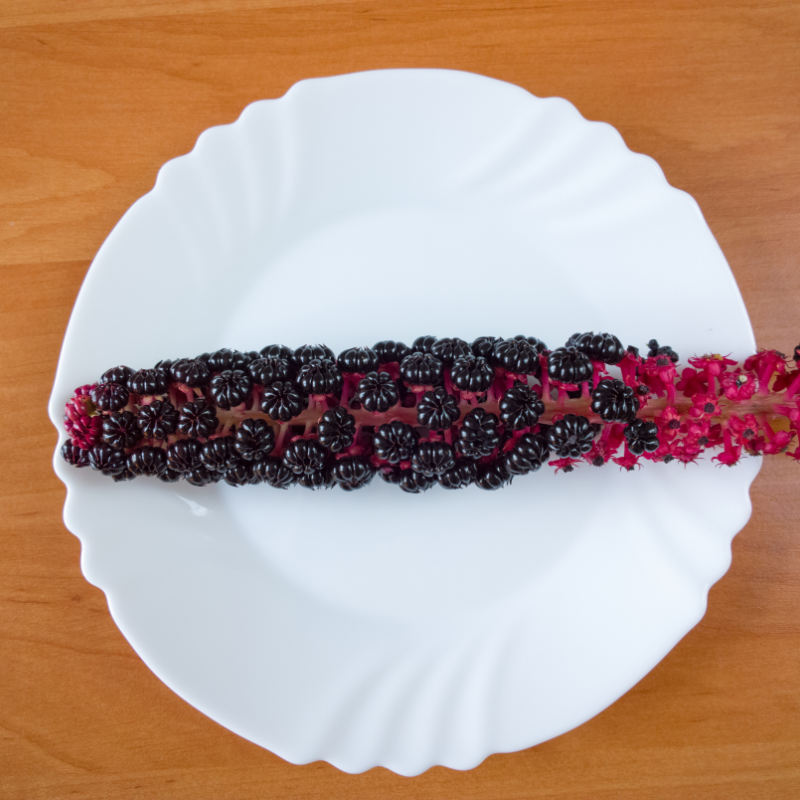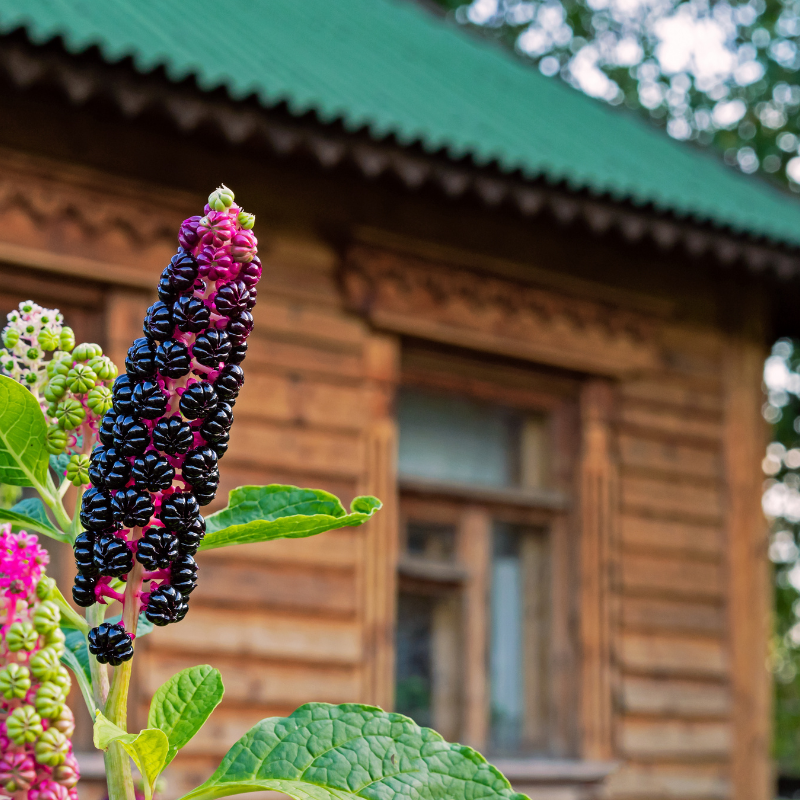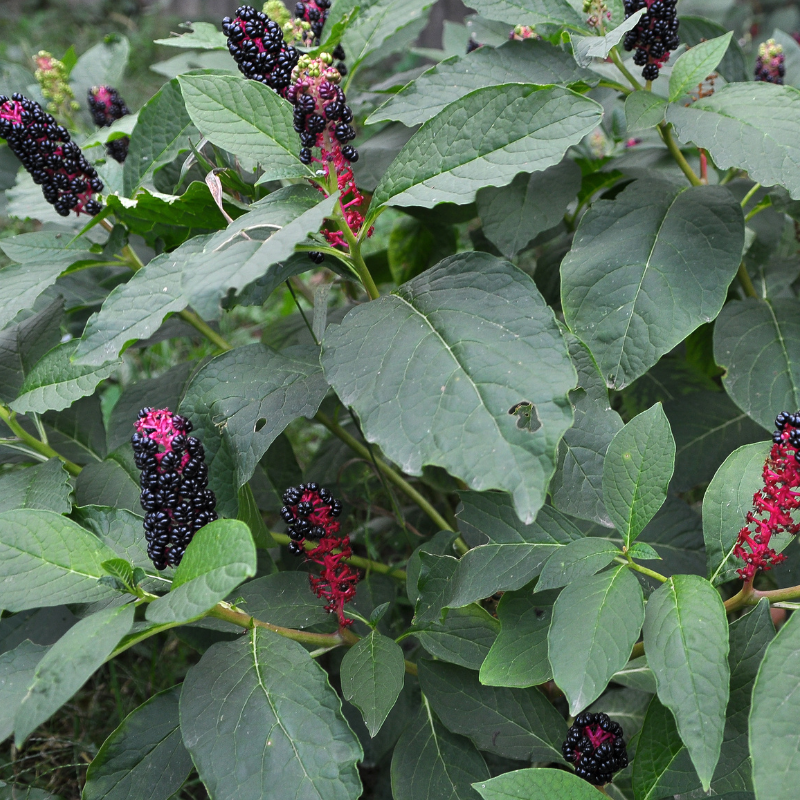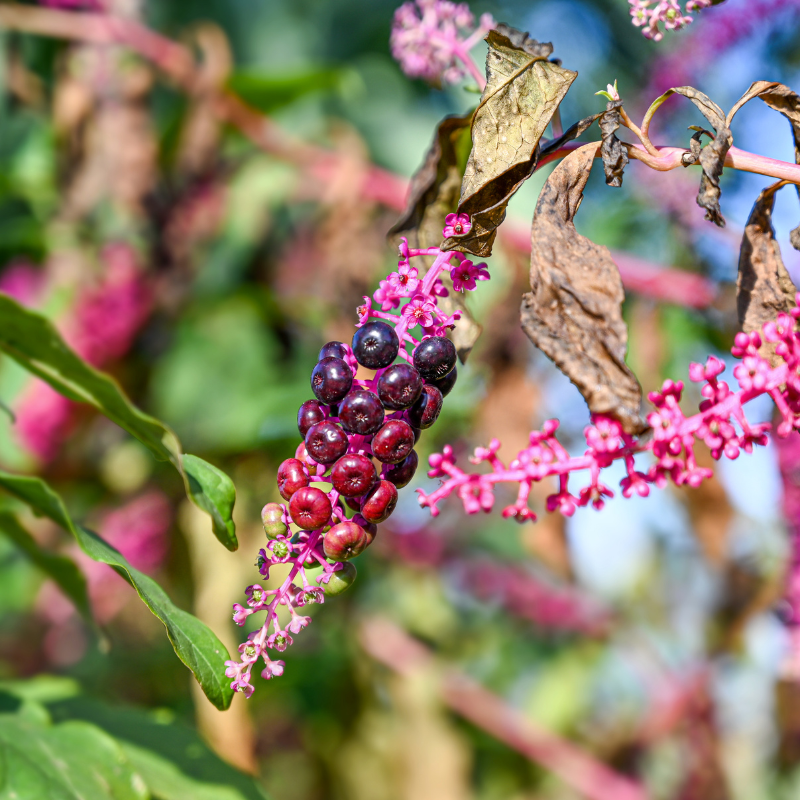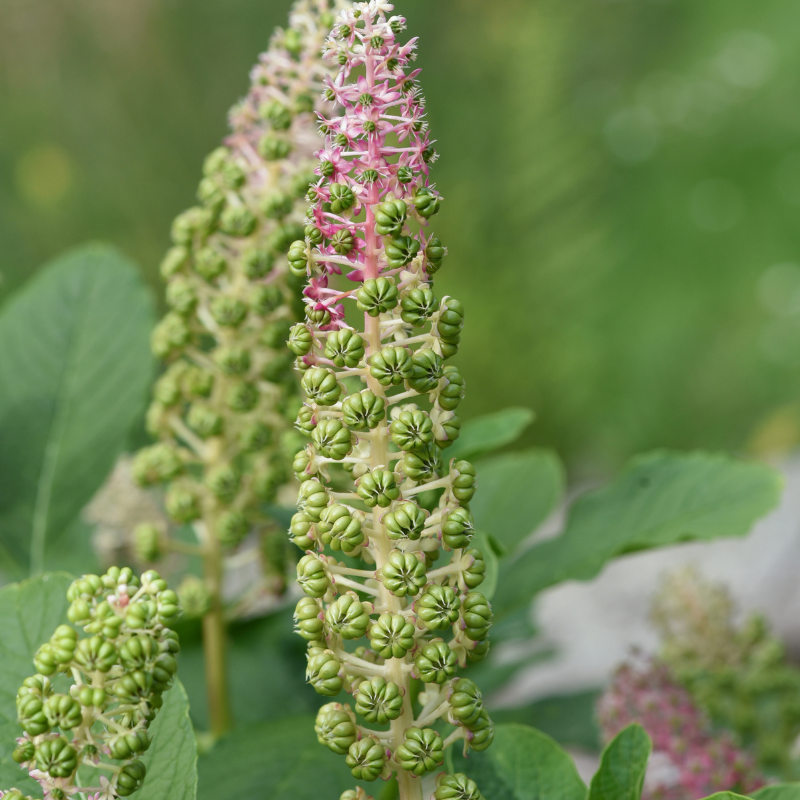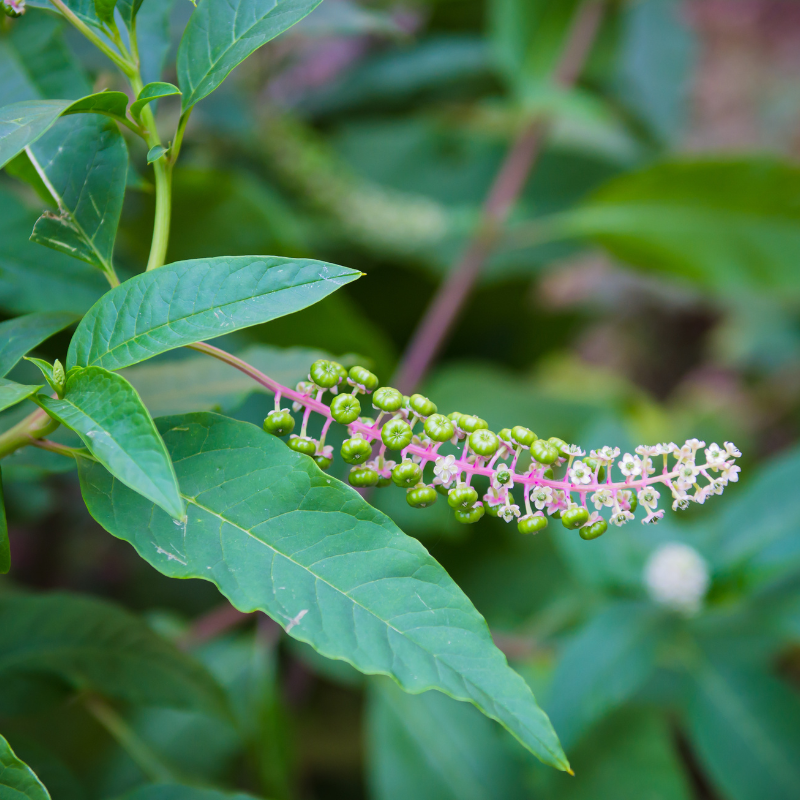Phytolacca japonica (Japanese Pokeweed) Seeds
Phytolacca japonica, commonly known as Japanese Pokeweed, is a herbaceous perennial plant from the Phytolaccaceae family. Native to East Asia, particularly Japan and China, this striking plant is valued for its bold foliage, vibrant berries, and adaptability to diverse garden settings. Its dramatic presence makes it a favorite in ornamental and naturalized gardens.
Characteristics:
• Plant Description: Japanese Pokeweed grows up to 1.5–2 meters in height, with robust, upright stems that are often tinged red. Its large, glossy green leaves create a lush backdrop, and in late summer, it produces spikes of small white flowers that develop into clusters of shiny, dark purple-black berries.
• Growth Habit: A fast-growing, clump-forming perennial that spreads by seed and underground rhizomes.
• Climate Adaptability: Thrives in temperate climates and adapts well to a variety of soil types, provided they are well-drained.
Uses and Benefits:
• Ornamental Value: Its striking foliage and decorative berries make it a standout addition to borders, woodland gardens, and wildflower meadows.
• Pollinator Support: The flowers attract bees and other beneficial insects, while the berries provide food for birds, contributing to local biodiversity.
• Traditional Uses: In its native range, parts of the plant have been used in traditional medicine, though care should be taken as the plant contains toxic compounds.
Cultivation:
• Sowing: Sow seeds in autumn or early spring in a well-prepared, moist, and fertile soil. Lightly press the seeds into the soil surface and keep consistently moist until germination, which may take 2–3 weeks.
• Growth Conditions: Prefers full sun to partial shade and thrives in well-drained, rich soils. Regular watering during the growing season is recommended.
• Maintenance: Japanese Pokeweed is a vigorous grower and may require thinning or pruning to maintain its shape and prevent overcrowding. Its self-seeding habit can be managed by removing berries before they mature.
Unique Features:
• Dramatic Garden Presence: The combination of lush foliage, striking flowers, and vibrant berries makes it a focal point in ornamental gardens.
• Ecological Importance: Provides food and shelter for wildlife, supporting birds and pollinators.
• Resilience: A hardy perennial that tolerates varied growing conditions, including poor or compacted soils.
Note of Caution:
All parts of the plant are toxic if ingested, particularly the roots and berries. Handle with care, and avoid planting in areas accessible to children or pets.
Shipping:
Available for shipping within India and worldwide. Orders are typically dispatched within 1–2 weeks.
From Deodar Seeds Company.
Phytolacca japonica, commonly known as Japanese Pokeweed, is a herbaceous perennial plant from the Phytolaccaceae family. Native to East Asia, particularly Japan and China, this striking plant is valued for its bold foliage, vibrant berries, and adaptability to diverse garden settings. Its dramatic presence makes it a favorite in ornamental and naturalized gardens.
Characteristics:
• Plant Description: Japanese Pokeweed grows up to 1.5–2 meters in height, with robust, upright stems that are often tinged red. Its large, glossy green leaves create a lush backdrop, and in late summer, it produces spikes of small white flowers that develop into clusters of shiny, dark purple-black berries.
• Growth Habit: A fast-growing, clump-forming perennial that spreads by seed and underground rhizomes.
• Climate Adaptability: Thrives in temperate climates and adapts well to a variety of soil types, provided they are well-drained.
Uses and Benefits:
• Ornamental Value: Its striking foliage and decorative berries make it a standout addition to borders, woodland gardens, and wildflower meadows.
• Pollinator Support: The flowers attract bees and other beneficial insects, while the berries provide food for birds, contributing to local biodiversity.
• Traditional Uses: In its native range, parts of the plant have been used in traditional medicine, though care should be taken as the plant contains toxic compounds.
Cultivation:
• Sowing: Sow seeds in autumn or early spring in a well-prepared, moist, and fertile soil. Lightly press the seeds into the soil surface and keep consistently moist until germination, which may take 2–3 weeks.
• Growth Conditions: Prefers full sun to partial shade and thrives in well-drained, rich soils. Regular watering during the growing season is recommended.
• Maintenance: Japanese Pokeweed is a vigorous grower and may require thinning or pruning to maintain its shape and prevent overcrowding. Its self-seeding habit can be managed by removing berries before they mature.
Unique Features:
• Dramatic Garden Presence: The combination of lush foliage, striking flowers, and vibrant berries makes it a focal point in ornamental gardens.
• Ecological Importance: Provides food and shelter for wildlife, supporting birds and pollinators.
• Resilience: A hardy perennial that tolerates varied growing conditions, including poor or compacted soils.
Note of Caution:
All parts of the plant are toxic if ingested, particularly the roots and berries. Handle with care, and avoid planting in areas accessible to children or pets.
Shipping:
Available for shipping within India and worldwide. Orders are typically dispatched within 1–2 weeks.
From Deodar Seeds Company.
Phytolacca japonica seeds - 10
- Brand: Deodar Seeds
- Product Code: HER67
- Availability: In Stock
₹354.00
Tags: Phytolacca, japonica, seeds

